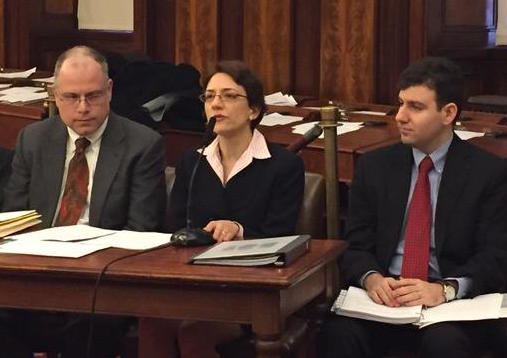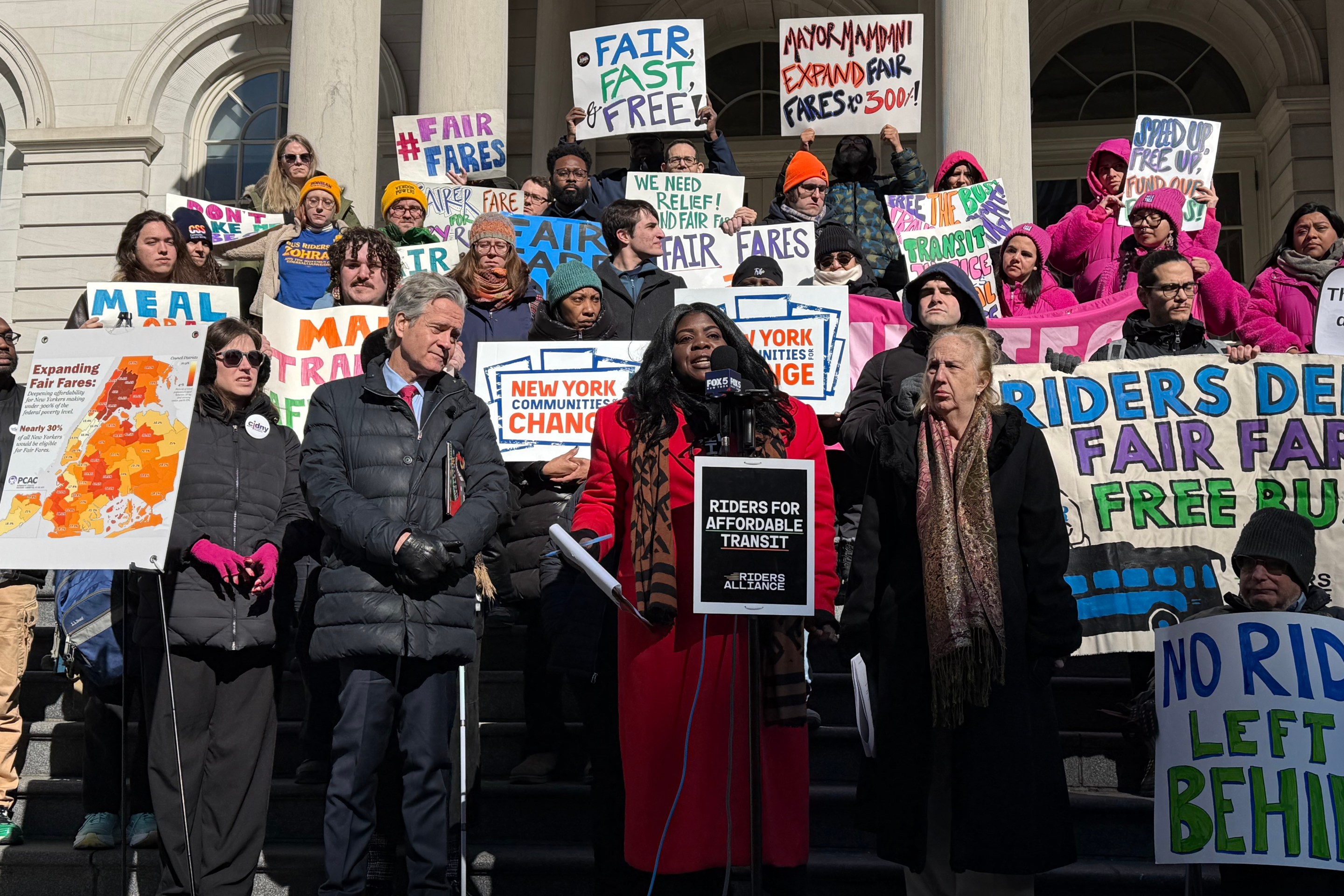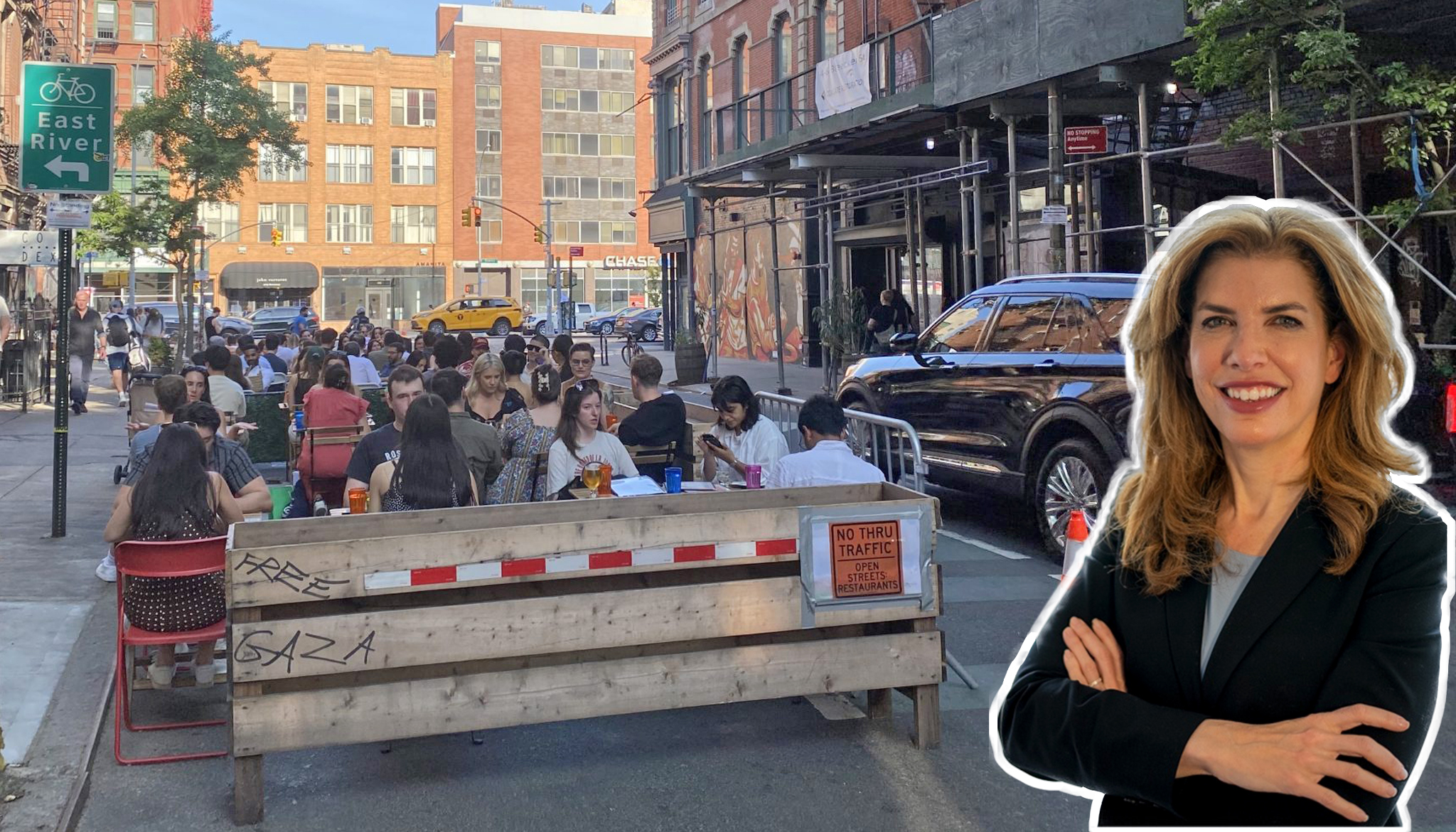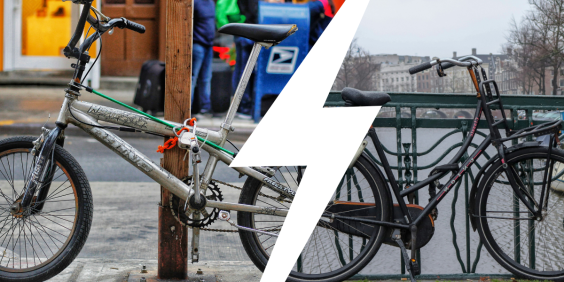The City Council transportation committee held a hearing today on the de Blasio administration's Bus Rapid Transit plans, giving council members an opportunity to prod DOT about its BRT progress and show their support (or lack thereof) for bus lanes and more robust surface transit improvements than the Select Bus Service program has yielded so far.

DOT Commissioner Polly Trottenberg said the mayor's preliminary budget, released yesterday, features $295 million for SBS expansion, including $84 million in new funding. Of that, $55 million will go to operational expenses through fiscal year 2018 and $240 million will go to capital projects through 2025.
The funding boost should help enlarge the agency's SBS project pipeline, paying for staff to both work with community boards and assist with engineering for new SBS routes. The new money replaces some federal funds that were expiring and roughly doubles the size of the SBS unit to 18 staffers, according to DOT Director of Transit Development Eric Beaton.
Here are some more highlights from the hearing:
- Mark your calendars: The de Blasio administration has committed to adding 13 Select Bus Service routes by the end of 2017, an effort Trottenberg said would require "all hands on deck." This year, DOT and MTA are aiming to bring SBS improvements to three additional routes. Upgrades to the M86 crosstown, which will feature off-board fare payment and other improvements but not bus lanes, is expected to launch this spring, followed by the B46 on Utica Avenue by the end of the summer and the Q44 between Jamaica and Flushing in the fall. A typical SBS route costs $10 million to launch, Trottenberg said, with more capital-intensive upgrades like bus bulbs continuing to be rolled out after the initial improvements.
- All eyes on Woodhaven: The City Council's Progressive Caucus is pushing City Hall to implement more robust BRT projects with features like physically separated bus lanes. DOT has yet to implement that type of design on any SBS route, but it is studying a center-running transitway for Woodhaven and Cross Bay Boulevards. Trottenberg said the project will include "some of the most cutting-edge things we’re seeing around the world." DOT is seeking a grant from the Federal Transit Administration for the 14-mile, $200 million project, she said, and hopes to hear back from the feds by August.
- Bus lane cameras: Instead of using physical separation, the city has set up enforcement cameras to keep bus lanes clear. Trottenberg said the cameras "have worked well" but the state law enabling them expires at the end of September. Albany restricts the cameras to a limited number of routes, and DOT has deployed cameras on only five SBS lines. Trottenberg wants to expand that number. "City Hall has still not put out our full Albany agenda," she said. "I look forward to working with City Hall and seeing how they want to prioritize this."
- Bus lane tantrums will be rewarded: The hearing included an exchange between Trottenberg and Council Member Rory Lancman in which the commissioner all but guaranteed that there would not be bus lanes in his district. "We go block by block, we almost go parking space by parking space, in trying to come up with a configuration that's going to work," she said. "And in places where we don't need to do the dedicated bus lanes, which had folks so concerned in Kew Gardens Hills, we're not gonna do it." (Later in the hearing, Trottenberg explained that adding bus lanes can actually help all traffic flow more smoothly, but that didn't seem to catch Lancman's interest.)
- Lander's bill for BRT planning: Council Member Brad Lander has introduced a bill requiring DOT to work with the MTA to create a 10-year Bus Rapid Transit plan that lays out expected BRT routes and estimates capital and operating costs. The bill, similar to legislation Lander introduced in 2013, did not come up for a vote today.
The hearing also included testimony from the Department of Citywide Administrative Services, which manages the city's 26,000-vehicle fleet. A bill from Council Member Ritchie Torres of the Bronx would require the city to shift five percent of its fleet to car-sharing each year. DCAS requested changes to the bill that would exclude purpose-built vehicles, such as garbage trucks, from the car-share requirement.
DCAS also touted its existing car-share agreement with Zipcar, which has helped eliminate more than 450 vehicles from the city's fleet since 2012.





